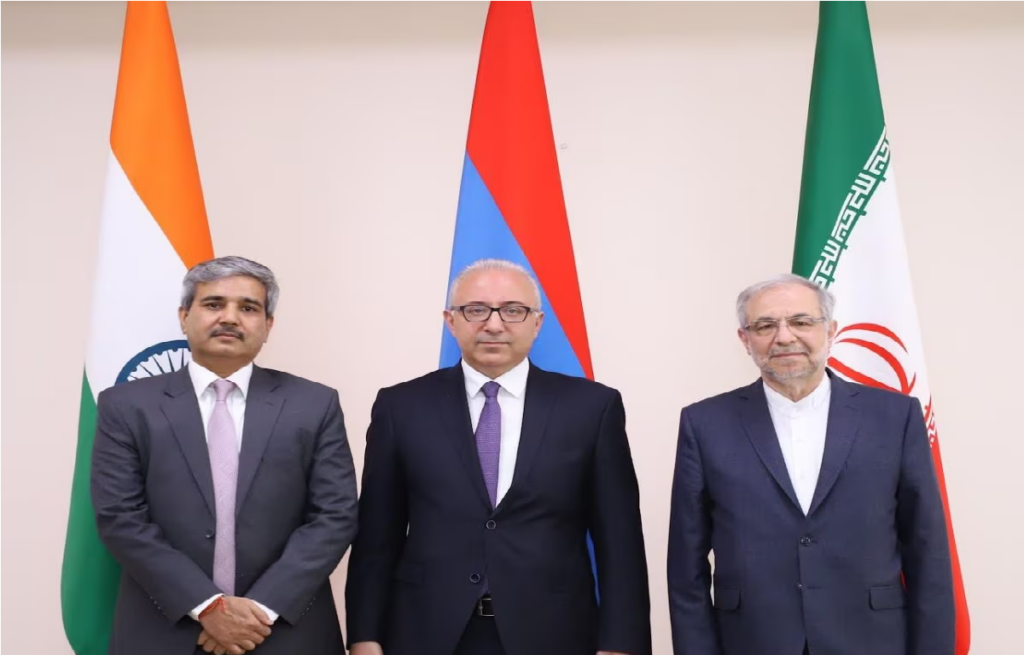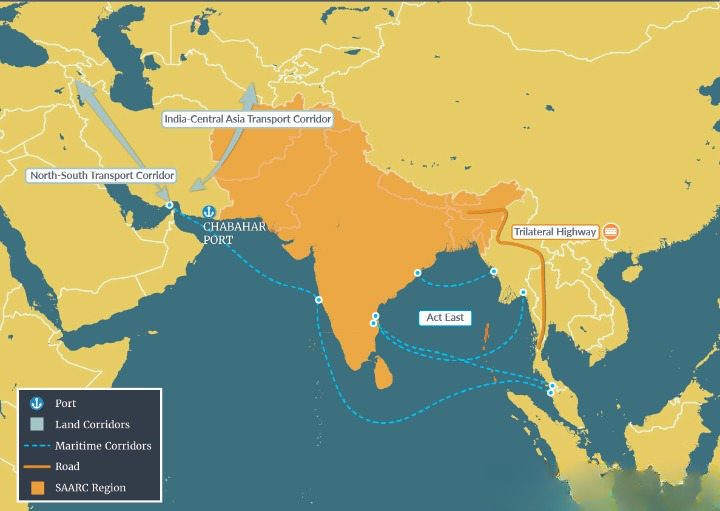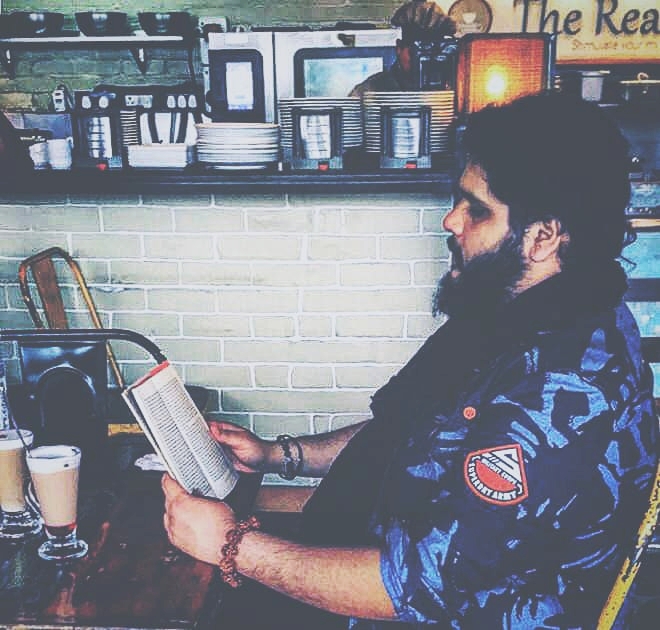
- The trilateral group comes as a response to the collaboration between Azerbaijan, Turkey and Pakistan.
- India has reason to have good ties with Iran and Armenia given the fact that Azerbaijan and Turkey have routinely supported Pakistan on the global stage and have also opposed India’s close ties with Armenia.
- Dualism may work well in your political and economic syllabus but it won’t always help in reality and there is no strong solution for any international crisis as long as this remains.
There was a trilateral meeting between the officials of Armenia, Iran and India. Much like the kind hosted by Azerbaijan, Turkey and Pakistan, the foreign officials met on the 20th of April in Yerevan, the capital of Armenia. The Armenian delegation was led by deputy minister of Foreign Affairs, Mnatsakan Safaryan, India’s delegation was led by MEA Joint Secretary (PAI), JP Singh and Iran’s delegation was led by Seyed Rasoul Mousavi. A video highlighting the meeting was released by the Armenian foreign ministry and a wide range of discussions were held between them.
The topic around the clashes with Azerbaijan must have featured alongside defence and technological talks since both India and Iran have sold their ingeniously made weapons to Armenia. India has reason to have good ties given the fact that both Azerbaijan and Turkey have routinely supported Pakistan on the global stage and have also opposed India’s closeness with the Armenians. India recently started playing offensive when it comes to dealing with Turkey and their progress in relations with Cyprus, Greece, France, Croatia, Syria etc is an example of this. India also did help Turkey recently when it came to humanitarian help, without expecting any favourable returns which means that India does value humanitarian lives be it in natural calamities as the Earthquake in Turkey showed or man-made calamities as the war between Armenia and Azerbaijan stretches around Nagorno Karabakh.
The grouping also has held discussions for a potential corridor that can bypass Azerbaijan and include Armenia, Iran, and Russia with a connection to the Chhabhar port which would make it an attractive option for India’s position in their trade with Iran as well as for Armenia as well. But the group has just started and given the kind of politics around the Caucasus, it will be there for a long.
The grouping of the trio comes as a response to the collaboration between Azerbaijan, Turkey and Pakistan. One may remember during the 2020 conflict between Armenia and Azerbaijan, Pakistan and Turkey lent their boots to the ground as well. Therefore, a direct involvement was made by them. India and Iran initially did not intervene with the Armenians but after a ceasefire agreement was signed by the intervention of Russia and their peacekeeping force, India and Iran made it a point to not only strengthen their relationships with the Armenians but also reinforce their focus to engage in consultations with each other. For India, it was clear that both Turkey and Azerbaijan will not let go of their positions around Pakistan and hence it was quite simple and straightforward for them to promote such a grouping.
Iran is an interesting case. It has a ranging Shia populace that is following the rules of the Ayatollah and looks after its interests in West Asia and beyond. But a curious case of their rivalry with Azerbaijan exists. Both are Shia-majority states but ethnicities remain different. Azerbaijan’s biggest ally alongside Turkey is the state of Israel which is a shock for many who approach the subject of world affairs with a narrow-minded approach.
Furthermore, Iran is the closest ally of an Eastern Orthodox Christian majority state of Armenia. Therefore it is quite simple for the Iranians that if they wish to make headway and be a prominent partner in the region, their support automatically goes to Armenia and the addition of Israel, Turkey and Pakistan makes it even easier for them. Although Iran has held some consultations with both Pakistan and Turkey separately, their strained ties with Israel and Azerbaijan motivate them to be part of any grouping that allows them to grow on the international stage. It’s worth noting that Iran has been under US and other sanctions for years now and it is in their interest to grow and engage in global affairs. Now that is established, why should people be surprised by such dynamics?

Truth be told, many commentators do not wish to look outside their own prism. Established norms are easier to follow these days. But those interested in international relations cannot be lax and must always prepare for any eventuality that occurs. West Asia, Central Asia is a complex place to be. One can never completely understand how to go about it. There is no black and white here. The importance of grey or the middle path is partially helpful to go about. People often try to use Hegel’s dialectics to serve as a base for this and as usual, fail to provide any substantial solution or method to understand internal dynamics as well. Scholars make it even worse in some departments as their idea of keeping religion away to find considerable results often stops after a point of brainstorming. You simply cannot remove religion away from West Asia. It runs on it. It breathes with it. It has prominent countries, trying to keep their political set-up above other nations. To try and judge and generalise it is something one must avoid if one ever wants to understand West Asia.
But then, comes another problem. Under the current International environment, you see alliances of any particular nature due to personal reasons or foreign interference. The US under Trump made decisions to stop waiving off countries that were importing oil from Iran. It continues under Biden, proving that not only does it support their own intentions against the Iranians but also pushes the likes of Saudi Arabia and UAE over as alternative sources of oil. But even that has led to both Saudi Arabia and UAE seeking alternative partners in trade.
Yet again, black and white won’t work. The first internal cold war between the Iranians and the Saudis has seemingly reached a point of cool as brokered by the Chinese. Despite that, much is to be sorted between them which includes the war in Yemen, Syria and their own respective nations. Turkey continues to try its best to gear up and sound prominent as the rest of the Arab states. Unfortunately, the Ottoman’s burden over Erdogan depends on his electoral result and on the mood of the Turkish country. The recent rise of neutral prominence due to the Ukrainian crisis has offered it a fresh space to breathe and shadowed the enormous inflation the Turkish economy was going through.
Finally, Dualism may work well in your political and economic syllabus but it won’t always help in reality. No wonder, there is no strong solution for any international crisis as long as this remains. It has to be with the pattern and movement of the changes that occur in the International system. One might ponder about this when they get to a point of no return from their books which parrot the same darn thing about peace, real will, and actual will and open their eyes around without an attempt of bias towards things. But as they say, trying to stay unique in a largely connected world where information spreads like wildfire is the new mainstream sheep jumping over the fences. Nothing lasts forever.
(Anhad Jakhmola is a postgraduate scholar in international relations. He has his undergraduate degree in history and is pursuing his PhD in Defence and Strategic Studies. He is a columnist for many portals and is a keen public speaker in debates and discussions. Views expressed are author’s own)

